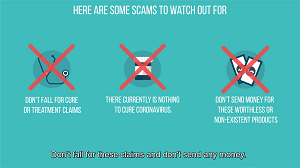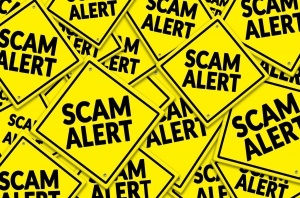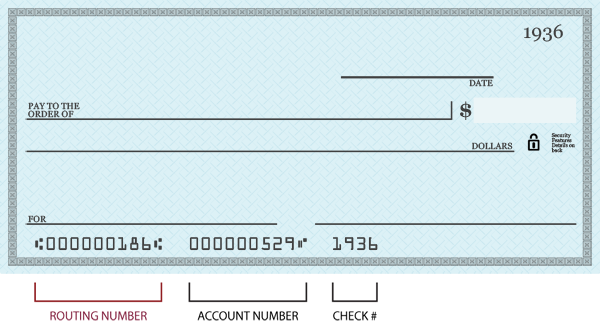A drastic increase in Coronavirus related scams is being reported worldwide. These criminal activities are taking advantage of people looking for information about the pandemic, and often the most vulnerable members of our society fall victim to these crimes.
Consumers and businesses need to be vigilant to protect their finances and personal information. Be on high alert for emails, texts and phone calls that may be from scammers disguised as official businesses or government agencies requesting your information.
Here are some examples of COVID-19 scams:
- Requests for your personal information to receive a Coronavirus Relief check from the government. The government will not ask for your social security number or request a fee for you to receive money.
- Investment solicitations from publicly traded companies that manufacture products to prevent or cure COVID-19.
- Text messages offering a free cellphone to help you while you are home.
- Individuals or companies selling a Coronavirus cure or treatment—this is a new virus and there are no current cures or approved treatments.
- Robocalls offering money to work from home for companies like Amazon or requests for donations to fraudulent charities.
- Bogus emails disguised as notifications from the Centers for Disease Control and Protection (CDC) and the World Health Organization (WHO). These emails may look credible with attention grabbing details and logos, but clicking on those embedded links will take you to a legitimate looking website set up to deceptively gather personal information.
- Check these resources for more on these scams and other fraudulent activity:

Coronavirus Flattening The Scam Curve
While it’s normal to want to learn more about the coronavirus and information surrounding it, experts are warning people to be cautious of scammers. Watch this video to learn more and be on the lookout for coronavirus-related scams.
Protect your bank account
Lakeland Bank will never contact you by text, email or phone asking for any personal or bank account information. Be on the lookout for the following types of crimes looking to steal your money:
- Spoof Phone Calls: Scammers may "spoof" a phone number so a text or call appears to be coming from Lakeland Bank. If you aren't expecting to be contacted, hang up and call your local branch or our Customer Service Center. Use contact information you already have on file or from our website.
- Phishing Emails: These emails are intended to look like they are from someone you know. Often, they claim something is wrong with your account, ask you to confirm personal information, or make a payment. If you think you may have received a phishing e-mail don't respond or click any links. Delete the e-mail right away.
Use authentic sources for information
Cybercriminals have been capitalizing on the global novel coronavirus emergency to launch world-wide scams designed to steal money, access personal information and infect computers. It’s important to know the types of scams and fraudulent activities being reported. If you have any suspicions about an unsolicited call, email or text, assume it is a scam and avoid further communication until you can determine it is an authentic source. Visit these authentic resources for information about scams and ways to protect against them:
Lakeland Bank is honored to be your financial services partner and is dedicated to protecting all of our customers. For additional information on protecting yourself from Identity Theft, please click here.
Visit Simply Speaking for more informative blogs.


